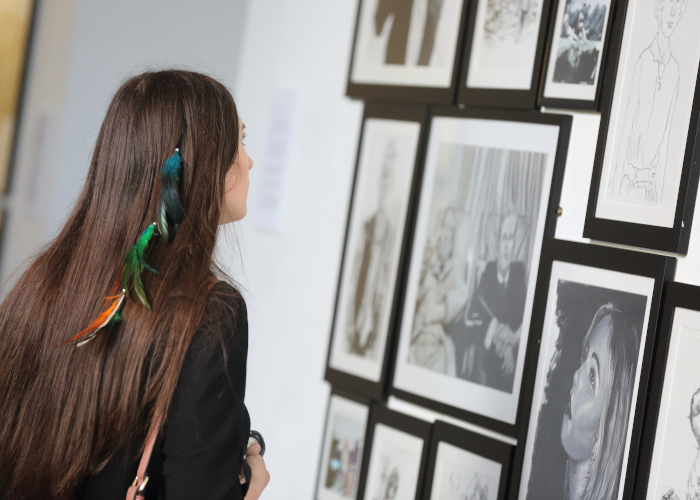Postgraduate study
Further your love for Art History at The University of Warwick
Deepen and extend your academic interests and pursue specialist work in your preferred areas of inquiry with our taught and research-based postgraduate programmes.
4th
The Guardian University Guide 2024 (History of Art subject area)
7th
The Times and Sunday Times Good University Guide 2024 (History of Art, Architecture and Design subject area)100%
of our research outputs are world-leading or internationally excellent (Research Excellence Framework 2021)Postgraduate Research Degrees
PhD
A PhD in History of Art is an advanced research degree, consisting of original research and engagement with current scholarship. It is awarded on the basis of successful completion of an individual research thesis of 80,000 words and an oral examination.
MPhil
The MPhil in History of Art is an advanced research degree, consisting of original research and engagement with current scholarship. It is awarded on the basis of successful completion of an individual research thesis of 60,000 words and an oral examination.
Why study at Warwick?

Our flexibility
Choose your location, mode of study and shape your studies to suit your interests and ambitions.
Our research and reputation
100% of our research outputs are world-leading or internationally excellent, History of Art at Warwick is ranked in the top 10 in all major UK league tables.
Our staff
With expertise spanning the medieval to the contemporary, we are able to offer research supervision on a wide range of topics.
Our career support
You will gain skills that are not only enable intellectual and personal growth but are also transferable and marketable, enhancing employment possibilities in the Art world and related fields.
Our Venice term
Immerse yourself in the art world’s premier city. We’re the only art history programme in the UK to offer a whole term's study in Venice.

Our curriculum
Covering a broad geographical and historical span, you can explore the history behind works of art from Antiquity to the present day, learning about politics, economics, human behaviours and beliefs.
Our building
The FAB is a stunning eight storey building. You'll be surrounded by creative people who will help shape your ideas and could form your professional network in the future.

Art on campus
We have one of the most important university art collections in the country, with over 1,000 works including key modern sculptures and paintings, and a world-class Arts Centre containing the Mead Gallery on our campus.






